 W
WLos amores de la Inés is a zarzuela in one act, two scenes, composed by Manuel de Falla in collaboration with Amadeu Vives. The work uses a Spanish language libretto by Emilio Dugi and the music is organized into a prelude and five musical sections.
 W
WEl barberillo de Lavapiés is a zarzuela in three acts (Op.56) by Francisco Asenjo Barbieri. The libretto, in Spanish, is by Luis Mariano de Larra. The first performance took place at the Teatro de la Zarzuela in Madrid on 18 December 1874, and it became one of the most well-known zarzuelas. Translated as The Little Barber of Lavapiés, the title refers to the occupation of one of the main characters and the humble and neglected area of the Spanish capital called Lavapiés where it is set.
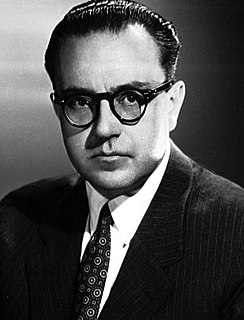 W
WBeatrix Cenci is an opera in two acts by Alberto Ginastera to a Spanish libretto by the composer and William Shand, based on the historical family of Beatrice Cenci, the Chroniques italiennes by Stendhal, and The Cenci by Percy Shelley. The first performance was on 10 September 1971 by the Opera Society of Washington in Washington, D.C., as part of the opening of the John F. Kennedy Center for the Performing Arts. The stage direction was by Gerald Freedman, with choreography by Joyce Trisler, and the conductor was Julius Rudel. New York City Opera first staged the work on 1 April 1973. The European premiere of Beatrix Cenci took place at the Geneva Opera in September 2000.
 W
WBomarzo is an opera in two acts by the Argentinian composer Alberto Ginastera, his Opus 34. He set a Spanish libretto by Manuel Mujica Laínez, based on his 1962 novel about the 16th-century Italian eccentric Pier Francesco Orsini.
 W
WLas bravías is a zarzuela in one act and four scenes with music by Ruperto Chapí. The work uses a Spanish language libretto by Carlos Fernández Shaw and José López Silva that is based on Shakespeare's The Taming of the Shrew. The opera premiered on 12 December 1896 at the Teatro Apolo in Madrid. Excerpts from the opera were recorded by tenor José Carreras, conductor Enrique García Asensio, and the English Chamber Orchestra in 1975 for Brilliant Classics.
 W
WEl cóndor pasa is a Peruvian zarzuela whose music was composed by Peruvian songwriter Daniel Alomía Robles in 1913 with a script written by Julio de La Paz. The piano arrangement of this play's most famous melody, El cóndor pasa, was legally registered on May 3, 1933, by The Edward B. Marks Music Corporation with the United States' Library of Congress under the number 9643. This zarzuela is written in prose and consists of one musical play and two acts. The eponymous piece, performed during the zarzuela's parade scene, has no lyrics. In July 2013, the Colectivo Cultural Centenario El Cóndor Pasa re-edited the original script, which had been lost for some time, as a CD containing the dialogue and seven musical pieces. The music from the original score was reconstructed by musicologist Luis Salazar Mejía, with the collaboration of musicians Daniel Dorival and Claude Ferrier, and it was performed on November 14, 15 and 16, 2013, at the Teatro UNI in Lima to commemorate the masterpiece's first centenary. All of the work done to recover and re-release the zarzuela was possible thanks to the efforts of musicologist Luis Salazar Mejía and cultural promoter Mario Cerrón Fetta, and was carried out without any public financial support.
 W
WLa Dolores is a Spanish opera in 3 acts by Tomás Bretón. The libretto was arranged by composer himself from a same-name drama by Josep Feliu i Codina (1892). The opera was first performed at the Teatro de la Zarzuela in Madrid on 16 March 1895 and was an immediate success. The most famous piece from the opera is the grandiose jota from the finale of the first act.
 W
WDon Rodrigo is an opera in three acts by Alberto Ginastera, the composer's first opera, to an original Spanish libretto by Alejandro Casona. Ginastera composed the opera on commission from the Municipality of the City of Buenos Aires, Argentina. The first performance was at the Teatro Colón, Buenos Aires, Argentina on 24 July 1964 with Carlo Cossutta in the title role. The production was directed by Jorge Petraglia and conducted by Bruno Bartoletti.
 W
WDoña Francisquita is a zarzuela in three acts composed by Amadeo Vives to a Spanish libretto by Federico Romero and Guillermo Fernández-Shaw and based on Lope de Vega's play La discreta enamorada. With its colourful score and comic story of multiple love triangles which ends happily for the young lovers, Francisquita and Fernando, Doña Francisquita is considered a classic of the zarzuela genre, and Vives' masterpiece.
 W
WEl estreno de una artista is a one-act zarzuela by Joaquín Gaztambide for libretto by Ventura de la Vega. Its first performance took place on 5 June 1852 at the Teatro del Circo in Madrid. It is an adaptation of an 1824 French opéra-comique Le concert à la cour by Eugène Scribe and Mélesville, music for which was written by Daniel Auber. After a long period of neglection, this zarzuela has been recently staged by the Teatro de la Zarzuela (2011).
 W
WFlorencia en el Amazonas is an opera in two acts composed by Daniel Catán. It contains elements of magical realism in the style of Gabriel García Márquez and uses a libretto by Marcela Fuentes-Berain, one of his pupils. The characters are inspired by García Márquez, but the story is not drawn directly from any of his works. Florencia was co-commissioned by Houston Grand Opera, Los Angeles Opera, and Seattle Opera and premiered in Houston on October 25, 1996. It was the first Spanish-language opera to be commissioned by major United States opera houses.
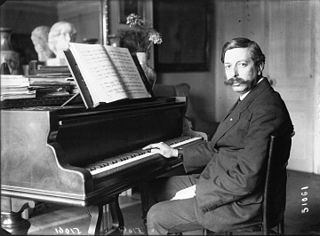 W
WGoyescas is an opera in one act and three tableaux, written in 1915 by the Spanish composer Enrique Granados. Granados composed the opera to a Spanish libretto by Fernando Periquet y Zuaznabar with melodies taken from his 1911 piano suite, which was also called Goyescas. The opera was first performed at the Metropolitan Opera in New York City on January 28, 1916.
 W
WGuatimotzin is an opera in one act and nine scenes composed by Aniceto Ortega del Villar to a libretto in Spanish by José Tomás de Cuéllar. It premiered on 13 September 1871 at the Gran Teatro Nacional in Mexico City. Described as an episodio musical, its plot is based on the defense of Mexico by its last Aztec emperor, Cuauhtémoc. It was one of the earliest Mexican operas to use a native subject.
 W
WJardín de Oriente is an opera in one act composed by Joaquín Turina to a Spanish-language libretto by Gregorio Martínez Sierra and his wife María Lejárraga. It premiered at the Teatro Real in Madrid on 6 March 1923. The story is set in the palace and gardens of a North African sultan and recounts the love story between one of the sultan's wives and the man who defeats him in battle.
 W
WLuisa Fernanda is a romantic zarzuela in three acts by Federico Moreno Torroba. It has been performed more than 10,000 times. The libretto, in Spanish, is by Federico Romero and Guillermo Fernández-Shaw. The first performance took place at Teatro Calderón in Madrid on 26 March 1932. It was Moreno Torroba’s fourth zarzuela, his first to receive great acclaim.
 W
WMargarita la tornera is an opera in three acts composed by Ruperto Chapí to a libretto by Carlos Fernández Shaw, based on a dramatic poem by José Zorrilla. It premiered on 24 February 1909 at the Teatro Real in Madrid in a performance conducted by the composer. An acclaimed recording of the opera came out in 1999 with Plácido Domingo and Elisabete Matos.
 W
WMargot is an opera in three acts composed by Joaquín Turina to a Spanish-language libretto by María Martínez Sierra. It premiered at the Teatro de la Zarzuela in Madrid on 10 October 1914. Set in Paris and Seville, the opera's story involves a love triangle between José Manuel, a young Spaniard; Margot, a Parisian courtesan with whom he has an affair; and Amparo, José Manuel's sweetheart in Andalucía.
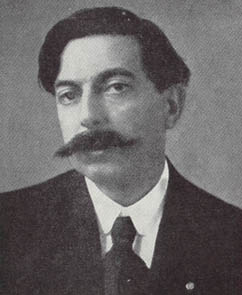 W
WMaría del Carmen is an opera in three acts composed by Enrique Granados to a Spanish libretto by José Feliú i Codina based on his 1896 play of the same name. It was Granados's first operatic success and, although it is largely forgotten today, he considered it to be his best opera. At the end of its initial run in Madrid where it premiered in 1898, Queen Maria Cristina awarded Granados the Charles III Cross in recognition of his work. The opera, sometimes described as a Spanish version of Mascagni's Cavalleria rusticana with a happy ending, is set in a village in the Spanish region of Murcia and involves a love triangle between María (soprano) and her two suitors, the peasant farmer, Pencho (baritone), and his wealthy rival, Javier (tenor).
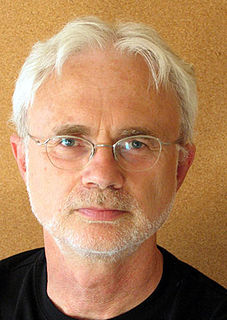 W
WEl Niño is an opera-oratorio by the contemporary American composer John Adams. It was premiered on December 15, 2000, at the Théâtre du Châtelet in Paris by soloists Dawn Upshaw, Lorraine Hunt Lieberson and Willard White, the vocal ensemble Theatre of Voices, the London Voices, La Maîtrise de Paris, and the Deutsches Symphonie-Orchester Berlin, with Kent Nagano conducting. It has been performed on a number of occasions since, and has been broadcast on BBC Television.
 W
WPartenope is an opera in three acts by Manuel de Zumaya. Zumaya adapted the libretto himself from a Spanish translation of Silvio Stampiglia's Italian libretto which was first set for performance in Naples during 1699 with music by Luigi Mancia. All told, Stampiglia's libretto was used by a variety of composers for more than a dozen operas that were produced all over Italy, including versions by Leonardo Vinci and George Frideric Handel. Zumaya's version was commissioned by Viceroy Fernando de Alencastre Noroña y Silva and produced at the viceroyal palace in Mexico City on 1 May 1711. The production is the earliest known full opera produced in North America and the first opera written by an American-born composer. However, Parténope is not the earliest opera to be performed in the New World, as some sources have reported. That distinction belongs to Tomás de Torrejón y Velasco's La púrpura de la rosa, which premiered ten years earlier in Lima, Peru.
 W
WUn pleito is a one-act zarzuela by Joaquín Gaztambide for libretto by Francisco Camprodón. Its first performance took place on 22 June 1858 at the Teatro de la Zarzuela in Madrid.
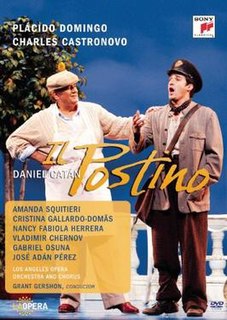 W
WIl Postino is an opera in three acts by Daniel Catán with a Spanish libretto by the composer. Based on the novel Ardiente paciencia by Antonio Skármeta and the film Il Postino by Michael Radford, the work contains elements of drama and comedy, integrating themes of love and friendship along with political and spiritual conflict. The opera premiered at the Dorothy Chandler Pavilion by Los Angeles Opera on 23 September 2010.
 W
WEl puñao de rosas is a one-act zarzuela "of Andalusian customs" by Spanish composer Ruperto Chapí to a libretto by Carlos Arniches and Ramón Asensio Más. It was successfully premiered on 30 October 1902, at the Teatro Apolo in Madrid. A parody zarzuela, El cuñao de Rosa, with text by Candela and Merino and music by Tomás López Torregrosa, was staged in February next year.
 W
WLa púrpura de la rosa is an opera in one act, composed by Tomás de Torrejón y Velasco to a Spanish libretto by Pedro Calderón de la Barca, a great writer of the Spanish Golden Age.
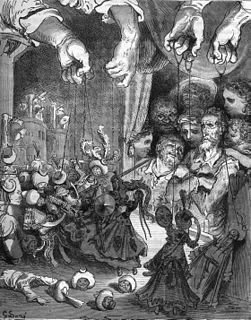 W
WEl retablo de maese Pedro is a puppet-opera in one act with a prologue and epilogue, composed by Manuel de Falla to a Spanish libretto based on an episode from Don Quixote by Miguel de Cervantes. The libretto is an abbreviation of chapter 26 of the second part of Don Quixote, with some lines added from other parts of the work. Falla composed this opera "in devoted homage to the glory of Miguel de Cervantes" and dedicated it to the Princess de Polignac, who commissioned the work. Because of its brief length by operatic standards, its very challenging part for a boy opera performer, and its use of puppets, it is not part of the standard operatic repertoire.
 W
WLa revoltosa is a Spanish zarzuela with a libretto by Jose Lopez Silva and Carlos Fernández Shaw and music by Ruperto Chapí. It premiered on 25 November 1897 at the Apollo Theatre in Madrid.
 W
WRío de Sangre is a Spanish-language opera in 3 acts and 14 scenes by the film score composer of the Matrix trilogy, Don Davis. Kate Gale wrote the original English prose libretto which was translated into Spanish by Alicia Partnoy. Commissioned by the Florentine Opera Company, the work premiered in October 22, 2010 in a production starring soprano Kerry Walsh and tenor John Duykers. The original cast recorded the opera for Albany Records in 2010. The opera is set in an unnamed South American country with a story centering on political intrigue and family tragedy. The role of its main character, Christian Delacruz, the country's newly elected president, was sung by Guido LeBron.
 W
WRoger de Flor is an opera in three acts by Ruperto Chapí for libretto by Mariano Capdepón. It is the third of the three operas composed by Chapí during his studies in Paris and Italy. It was staged for the first time at the Teatro Real in Madrid on 23 January 1878. The first modern performance was on 10 March 2012 in Palau de la Música de València in a concert performance.
 W
WLa serenata is a one-act opera by Ruperto Chapí for libretto by José Estremera. It was first performed on 5 November 1881 at the Teatro Apolo in Madrid.
 W
WLa tabernera del puerto is a zarzuela in three acts by composer Pablo Sorozábal. The opera uses a Spanish-language libretto by Federico Romero and Guillermo Fernández-Shaw. The work premiered at the Teatro Tívoli in Barcelona on 6 April 1936.
 W
WTata Vasco is an opera in five scenes composed by Miguel Bernal Jiménez to a Spanish libretto with nationalistic and devoutly Roman Catholic themes by the Mexican priest and poet, Manuel Muñoz. It premiered in Pátzcuaro, Mexico on 15 February 1941. The opera is based on the life of Vasco de Quiroga, the first Bishop of Michoacán and known to the indigenous Purépecha of the region as 'Tata Vasco'. Considered one of Bernal Jiménez's most emblematic scores, the music incorporates native melodies, dances, and instruments as well as elements of Gregorian chant.
 W
WLa verbena de la Paloma —subtitled El boticario y las chulapas y celos mal reprimidos— is an 1894 zarzuela with a libretto by Ricardo de la Vega and music by Tomás Bretón. It premiered on 17 February 1894 in Teatro Apolo, Madrid. It was later adapted for the cinema in 1921 by José Buchs, in 1935 as Paloma Fair by Benito Perojo and in 1963 as The Fair of the Dove by José Luis Sáenz de Heredia.
 W
WLa vida breve is an opera in two acts and four scenes by Manuel de Falla to an original Spanish libretto by Carlos Fernández-Shaw. Local (Andalusian) dialect is used. It was written between August 1904 and March 1905, but not produced until 1913. The first performance was given at the Casino Municipal in Nice on 1 April 1913. Paris and Madrid performances followed, later in 1913 and in 1914 respectively. Claude Debussy played a major role in influencing Falla to transform it from the number opera it was at its Nice premiere to an opera with a more continuous musical texture and more mature orchestration. This revision was first heard at the Paris premiere at the Opéra-Comique in December 1913, and is the standard version.
 W
WUna vieja is a one-act zarzuela by Joaquín Gaztambide for libretto by Francisco Camprodón. It is based on a French opéra comique La vieille by Eugène Scribe and François-Joseph Fétis (1826). The zarzuela got its first performance on 11 or 14 December 1860 at the Teatro de la Zarzuela in Madrid. It was regularly staged until 1940s and has been revived occasionally in later times.
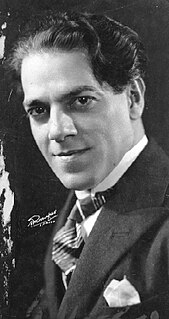 W
WYerma is an opera in three acts by Heitor Villa-Lobos based on the tragedy of the same name by Federico García Lorca.